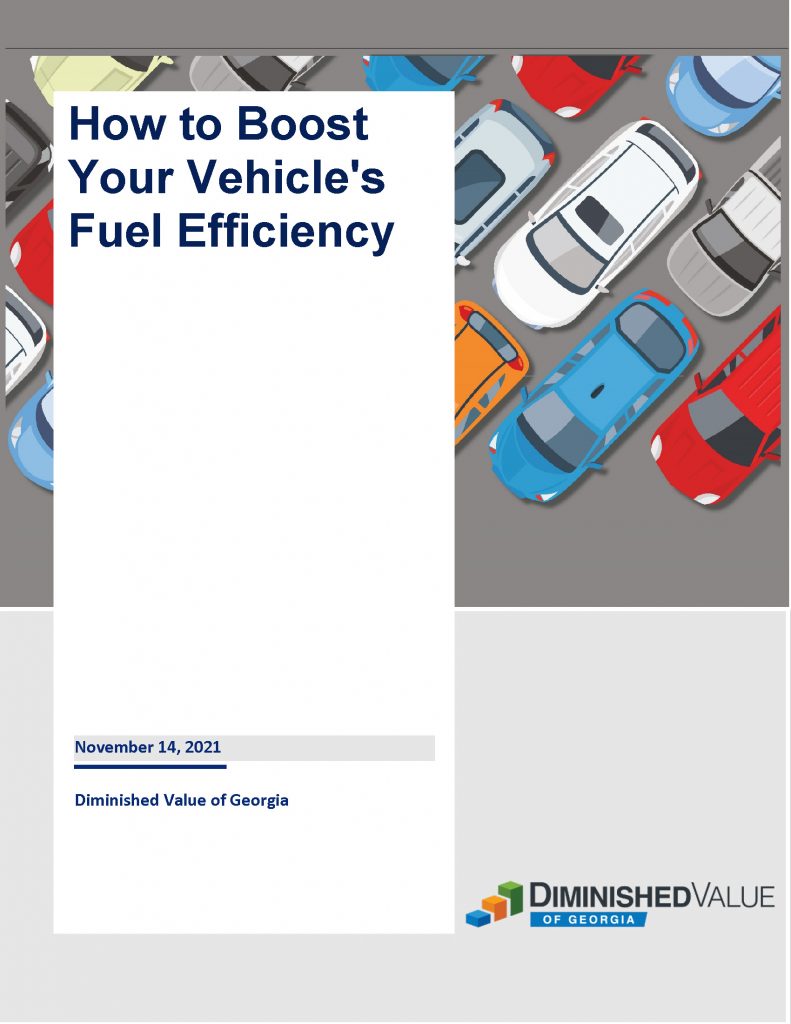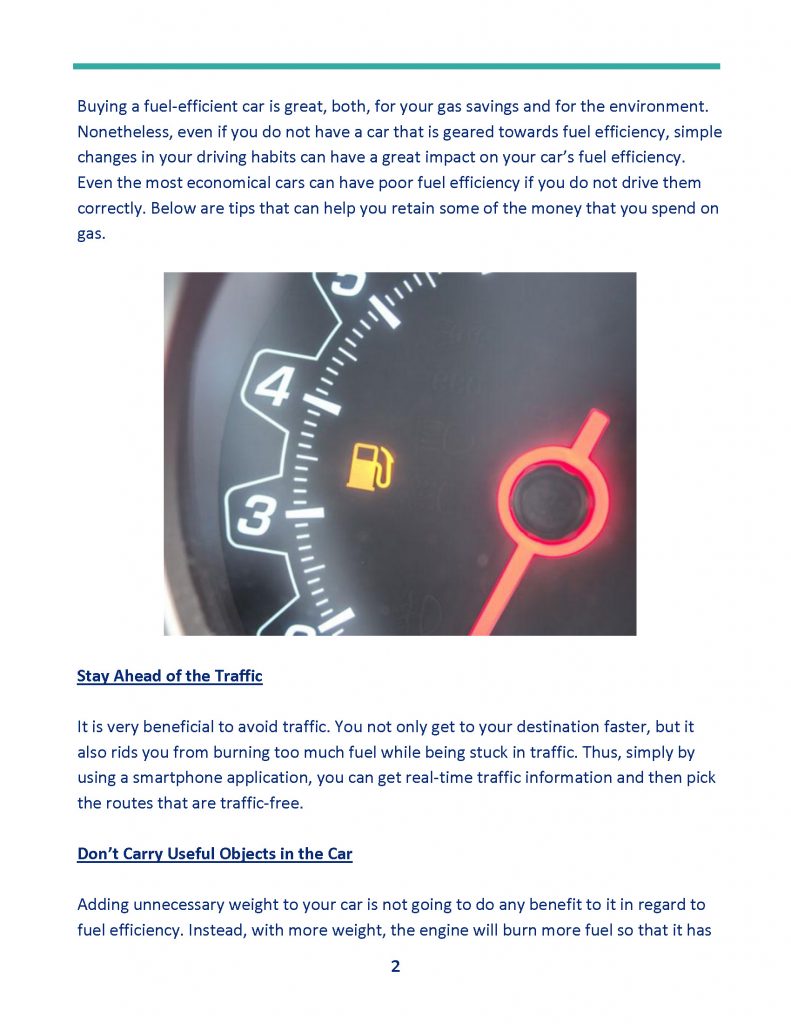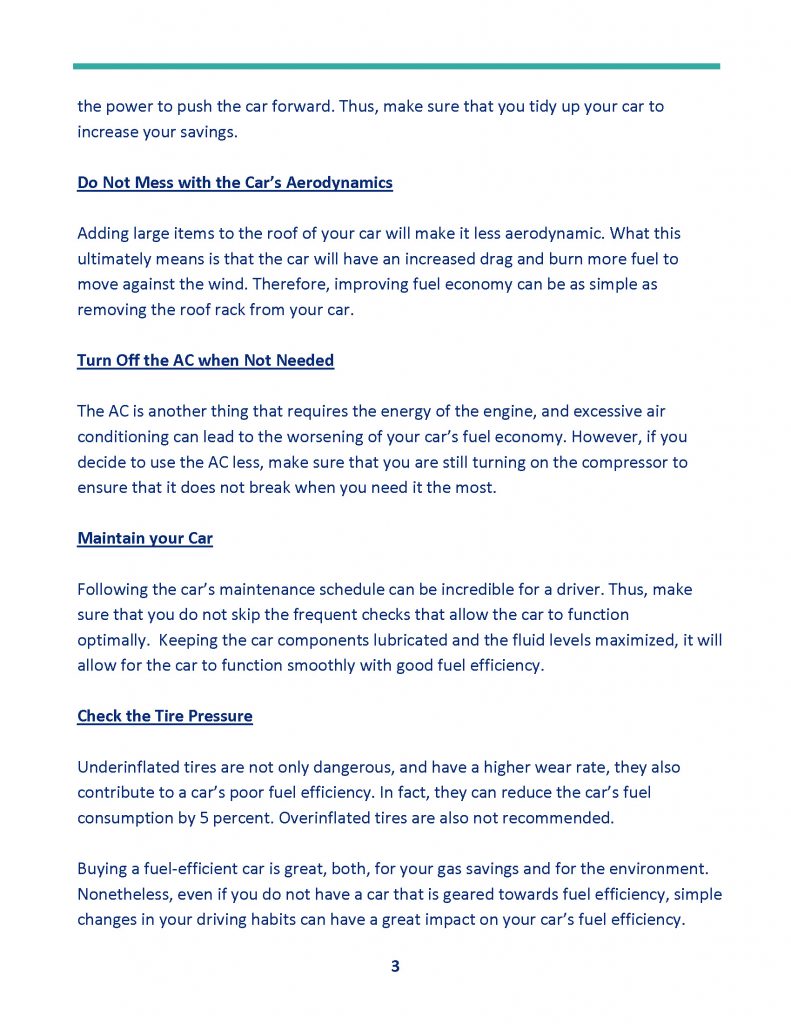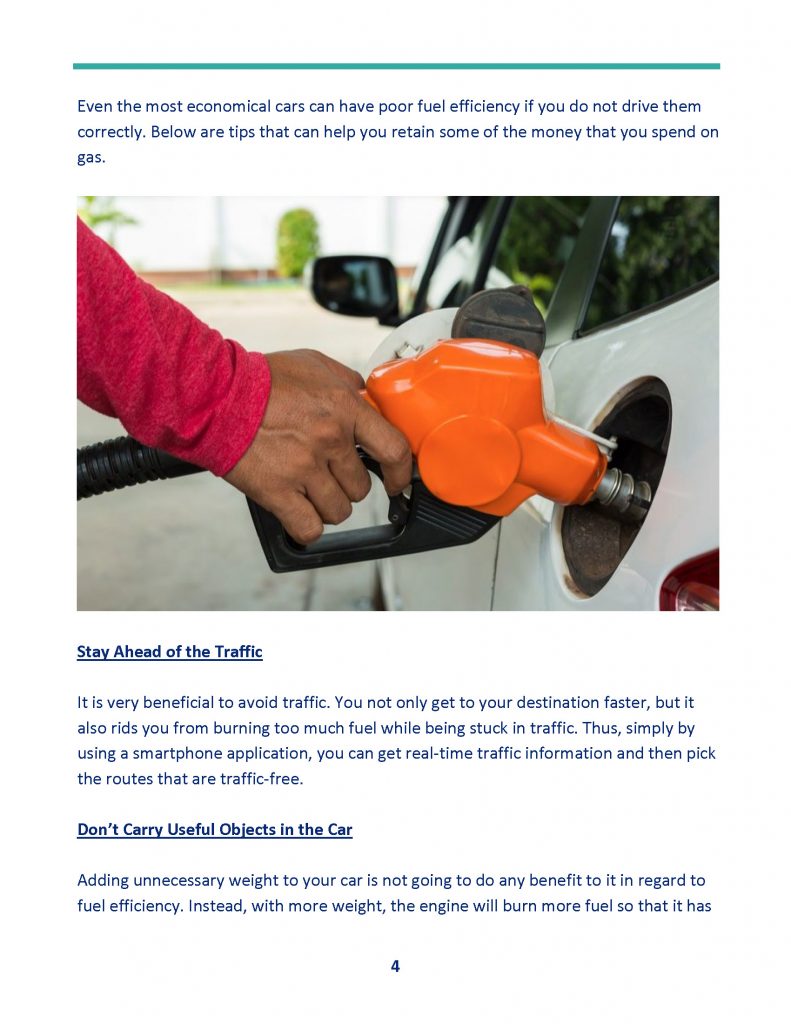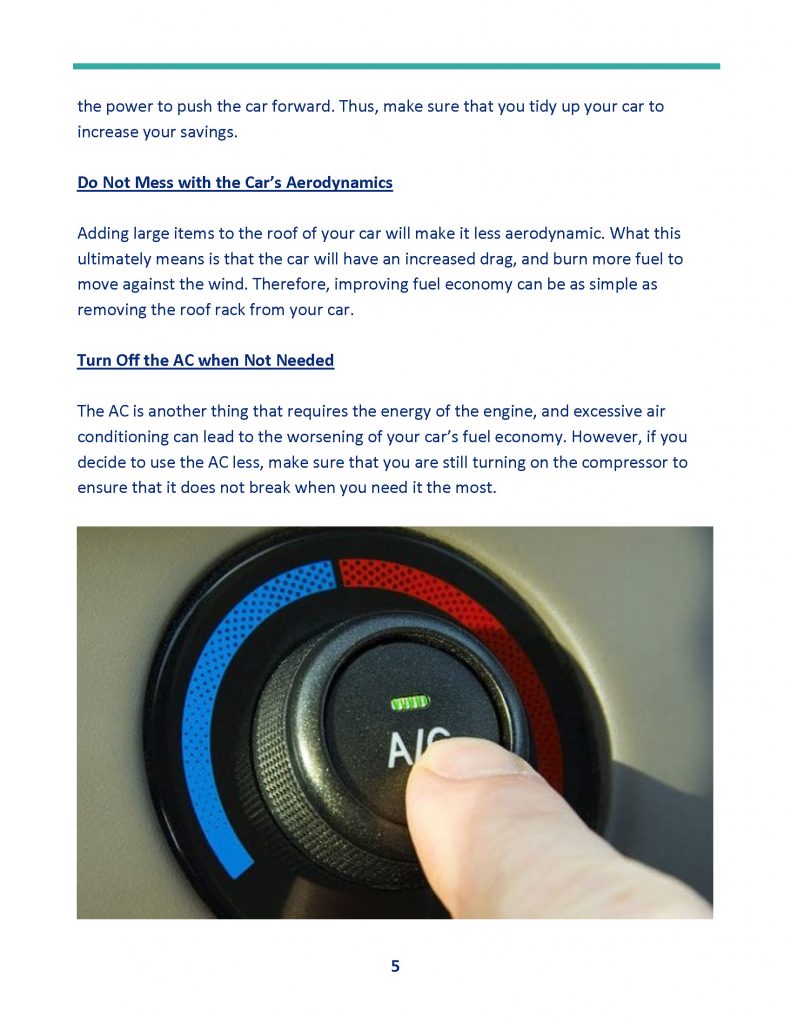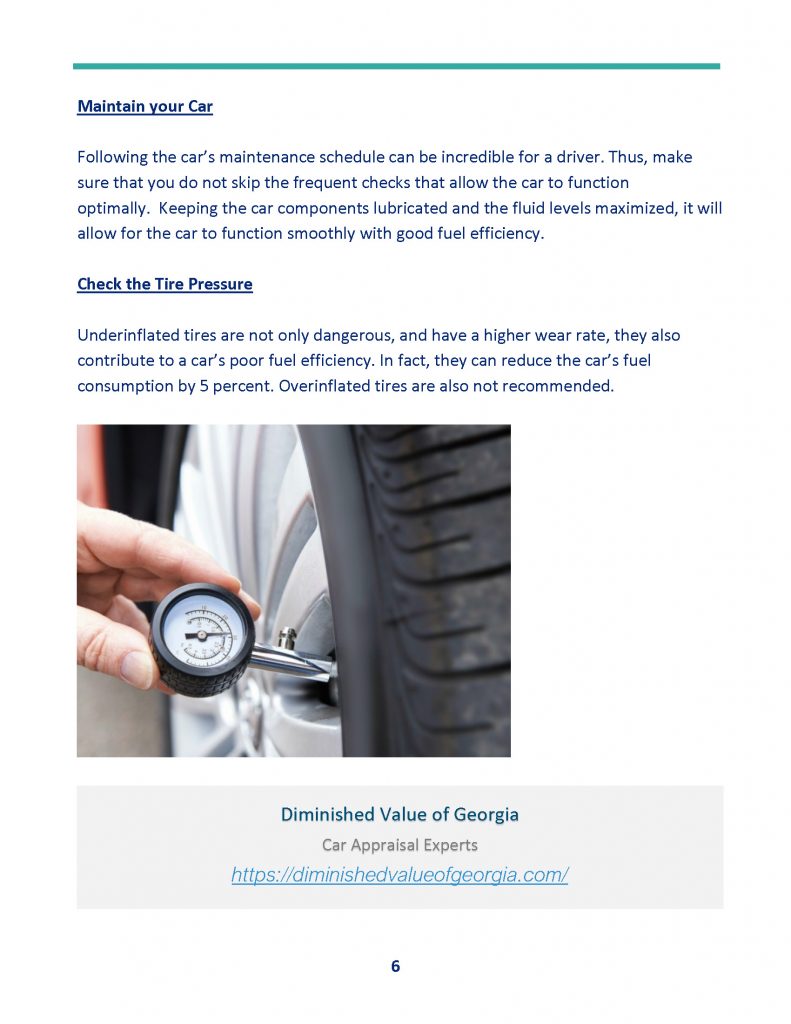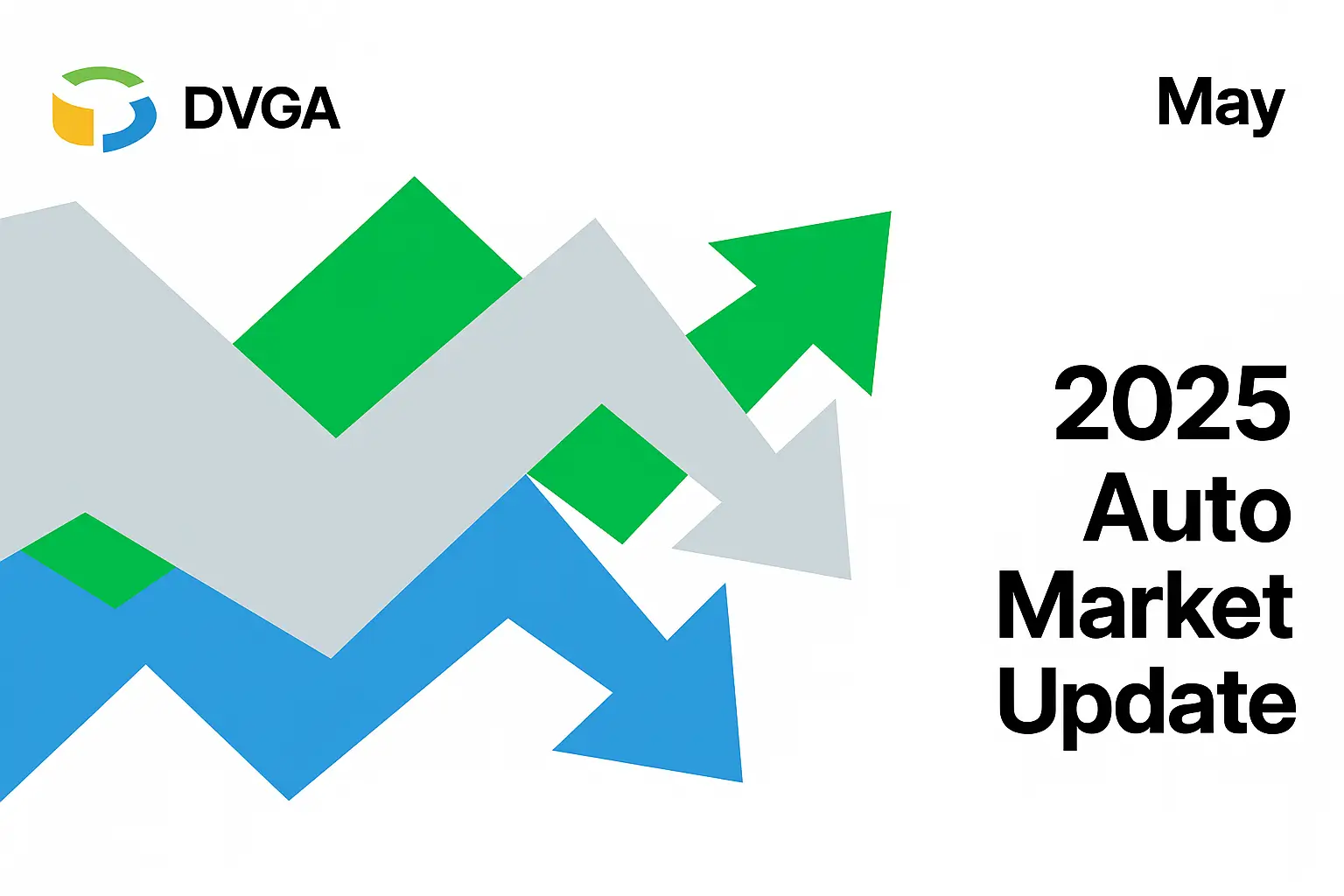Buying a fuel-efficient car is great, both, for your gas savings and also for the environment. Nonetheless, even if you do not have a car that is geared towards fuel efficiency, simple changes in your driving habits can have a great impact on your car’s fuel efficiency. Even the most economical cars can have poor fuel efficiency if you do not drive them correctly. Below are tips that can help you retain some of the money that you spend on gas.
Stay Ahead of the Traffic
It is very beneficial to avoid traffic. You not only get to your destination faster, but it also rids you from burning too much fuel while being stuck in traffic. Thus, simply by using a smartphone application, you can get real-time traffic information and then pick the routes that are traffic-free.
Don’t Carry Useful Objects in the Car
Adding unnecessary weight to your car is not going to do any benefit to it in regards to fuel efficiency. Instead, with more weight, the engine will burn more fuel so that it has the power to push the car forward. Thus, make sure that you tidy up your car to increase your savings.
Do Not Mess with the Car’s Aerodynamics
Adding large items to the roof of your car will make it less aerodynamic. What this ultimately means is that the car will have an increased drag, and burn more fuel to move against the wind. Therefore, improving fuel economy can be as simple as removing the roof rack from your car.
Turn Off the AC when Not Needed
The AC is another thing that requires the energy of the engine, and excessive air conditioning can lead to the worsening of your car’s fuel economy. However, if you decide to use the AC less, make sure that you are still turning on the compressor to ensure that it does not break when you need it the most.
Maintain your Car
Following the car’s maintenance schedule can be incredible for a driver. Thus, make sure that you do not skip the frequent checks that allow the car to function optimally. Keeping the car components lubricated and the fluid levels maximized, it will allow for the car to function smoothly with good fuel efficiency.
Check the Tire Pressure
Underinflated tires are not only dangerous, and have a higher wear rate, they also contribute to a car’s poor fuel efficiency. In fact, they can reduce the car’s fuel consumption by 5 percent. Overinflated tires are also not recommended.
Buying a fuel-efficient car is great, both, for your gas savings and also for the environment. Nonetheless, even if you do not have a car that is geared towards fuel efficiency, simple changes in your driving habits can have a great impact on your car’s fuel efficiency. Even the most economical cars can have poor fuel efficiency if you do not drive them correctly. Below are tips that can help you retain some of the money that you spend on gas.
Stay Ahead of the Traffic
It is very beneficial to avoid traffic. You not only get to your destination faster, but it also rids you from burning too much fuel while being stuck in traffic. Thus, simply by using a smartphone application, you can get real-time traffic information and then pick the routes that are traffic-free.
Don’t Carry Useful Objects in the Car
Adding unnecessary weight to your car is not going to do any benefit to it in regards to fuel efficiency. Instead, with more weight, the engine will burn more fuel so that it has the power to push the car forward. Thus, make sure that you tidy up your car to increase your savings.
Do Not Mess with the Car’s Aerodynamics
Adding large items to the roof of your car will make it less aerodynamic. What this ultimately means is that the car will have an increased drag, and burn more fuel to move against the wind. Therefore, improving fuel economy can be as simple as removing the roof rack from your car.
Turn Off the AC when Not Needed
The AC is another thing that requires the energy of the engine, and excessive air conditioning can lead to the worsening of your car’s fuel economy. However, if you decide to use the AC less, make sure that you are still turning on the compressor to ensure that it does not break when you need it the most.
Maintain your Car
Following the car’s maintenance schedule can be incredible for a driver. Thus, make sure that you do not skip the frequent checks that allow the car to function optimally. Keeping the car components lubricated and the fluid levels maximized, it will allow for the car to function smoothly with good fuel efficiency.
Check the Tire Pressure
Underinflated tires are not only dangerous, and have a higher wear rate, they also contribute to a car’s poor fuel efficiency. In fact, they can reduce the car’s fuel consumption by 5 percent. Overinflated tires are also not recommended.
